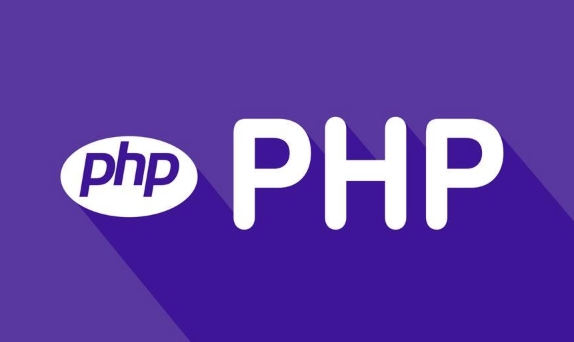 Backend Development
Backend Development
 PHP Tutorial
PHP Tutorial
 Describe the Concept of CSRF and How to Protect Against it in PHP
Describe the Concept of CSRF and How to Protect Against it in PHP
Describe the Concept of CSRF and How to Protect Against it in PHP
Jul 13, 2025 am 02:53 AMCSRF attacks are used to fake requests using the user's logged in identity. Specifically, the attacker induces users to access malicious websites, sends requests in the user's name without the user's knowledge, and performs non-intentional operations. A common way to prevent CSRF is to use the CSRF token mechanism, 1. Generate a unique random token; 2. Save the token in the Session and form hidden fields; 3. Compare whether the two are consistent when submitting. Other protection methods include checking the Referer header, setting the SameSite Cookie attribute, and introducing a verification code mechanism. Easy to ignore points include AJAX request not token, token generation is unsafe, and token storage into cookies incorrectly. The correct way to do this is to just store the token in the Session and pass it through the hidden fields.

CSRF (Cross-Site Request Forgery) is a common web security vulnerability. By inducing users to access malicious websites, the attacker sends requests to the target website in the name of the user without the user's knowledge, and performs some non-intentional operations, such as password modification, transfer, etc.

The reason why this attack is successful is that the browser will automatically bring cookie information related to the target website when sending a request. As long as the user has logged in to the website before and has not logged out, the attacker can "impersonate" the user to operate.
What is a CSRF attack?
Simply put, CSRF uses the user's login identity to secretly initiate a request. For example:

- The user logged into a bank website
bank.com - The attacker induces the user to access a malicious page with a hidden form inside, and the submission address is
bank.com/transfer - After the form is automatically submitted, the server performs the transfer operation since the user is still logged in.
The entire process may be unaware of it, but the operation has been completed by the attacker.
How to prevent CSRF attacks in PHP?
The most common and most effective way to prevent CSRF in PHP is to use the CSRF Token mechanism. The specific steps are as follows:

- Generate a unique random token every time the form is generated
- Save the token in the hidden fields of the Session and form at the same time
- When submitting a form, whether the token in the Session and the token submitted are consistent.
If the two are inconsistent, it means that the source of the request is untrusted and the processing is directly refused.
For example:
// Generate token and store it in Session
if (empty($_SESSION['csrf_token'])) {
$_SESSION['csrf_token'] = bin2hex(random_bytes(50));
}
// Embed the token when outputting the form
echo '<input type="hidden" name="csrf_token" value="' . $_SESSION['csrf_token'] . '">';
// Verify the Token when submitting the process
if ($_POST['csrf_token'] !== $_SESSION['csrf_token']) {
die('illegal request');
}This method can effectively prevent cross-domain request forgery, because the attacker cannot obtain the token value in the user's current page.
What other protective measures are there?
In addition to tokens, protection can be strengthened in combination with the following methods:
-
Check the Referer header : Make sure the request comes from your own website
Note: Some browsers or privacy settings may block Referer and cannot rely on it alone
-
SameSite Cookie Attribute : Set Cookie to
SameSite=StrictorLaxThis way the browser will not carry cookies in cross-site requests, reducing risks from the source
-
Verification code mechanism : for highly sensitive operations (such as modifying passwords), add verification code to confirm
Although the user experience is slightly poor, the security is higher
These methods can be used as a supplement to the token mechanism to form a multi-layer defense system.
What are the places that are easy to ignore?
Sometimes developers only use tokens in forms, but forget to add them in AJAX requests, which leaves a vulnerability.
In addition, the token should be random and unpredictable enough to be spliced with timestamps or simple strings.
Some people also store tokens in cookies, which is not safe, because cross-site requests can also read cookies.
The correct way is to only exist in the Session and pass it to the front end through hidden fields.
Basically that's it. Protecting CSRF is actually not complicated, but if the details are not done properly, it is easy to be broken.
The above is the detailed content of Describe the Concept of CSRF and How to Protect Against it in PHP. For more information, please follow other related articles on the PHP Chinese website!

Hot AI Tools

Undress AI Tool
Undress images for free

Undresser.AI Undress
AI-powered app for creating realistic nude photos

AI Clothes Remover
Online AI tool for removing clothes from photos.

Clothoff.io
AI clothes remover

Video Face Swap
Swap faces in any video effortlessly with our completely free AI face swap tool!

Hot Article

Hot Tools

Notepad++7.3.1
Easy-to-use and free code editor

SublimeText3 Chinese version
Chinese version, very easy to use

Zend Studio 13.0.1
Powerful PHP integrated development environment

Dreamweaver CS6
Visual web development tools

SublimeText3 Mac version
God-level code editing software (SublimeText3)
 PHP Variable Scope Explained
Jul 17, 2025 am 04:16 AM
PHP Variable Scope Explained
Jul 17, 2025 am 04:16 AM
Common problems and solutions for PHP variable scope include: 1. The global variable cannot be accessed within the function, and it needs to be passed in using the global keyword or parameter; 2. The static variable is declared with static, and it is only initialized once and the value is maintained between multiple calls; 3. Hyperglobal variables such as $_GET and $_POST can be used directly in any scope, but you need to pay attention to safe filtering; 4. Anonymous functions need to introduce parent scope variables through the use keyword, and when modifying external variables, you need to pass a reference. Mastering these rules can help avoid errors and improve code stability.
 How to handle File Uploads securely in PHP?
Jul 08, 2025 am 02:37 AM
How to handle File Uploads securely in PHP?
Jul 08, 2025 am 02:37 AM
To safely handle PHP file uploads, you need to verify the source and type, control the file name and path, set server restrictions, and process media files twice. 1. Verify the upload source to prevent CSRF through token and detect the real MIME type through finfo_file using whitelist control; 2. Rename the file to a random string and determine the extension to store it in a non-Web directory according to the detection type; 3. PHP configuration limits the upload size and temporary directory Nginx/Apache prohibits access to the upload directory; 4. The GD library resaves the pictures to clear potential malicious data.
 Commenting Out Code in PHP
Jul 18, 2025 am 04:57 AM
Commenting Out Code in PHP
Jul 18, 2025 am 04:57 AM
There are three common methods for PHP comment code: 1. Use // or # to block one line of code, and it is recommended to use //; 2. Use /.../ to wrap code blocks with multiple lines, which cannot be nested but can be crossed; 3. Combination skills comments such as using /if(){}/ to control logic blocks, or to improve efficiency with editor shortcut keys, you should pay attention to closing symbols and avoid nesting when using them.
 How Do Generators Work in PHP?
Jul 11, 2025 am 03:12 AM
How Do Generators Work in PHP?
Jul 11, 2025 am 03:12 AM
AgeneratorinPHPisamemory-efficientwaytoiterateoverlargedatasetsbyyieldingvaluesoneatatimeinsteadofreturningthemallatonce.1.Generatorsusetheyieldkeywordtoproducevaluesondemand,reducingmemoryusage.2.Theyareusefulforhandlingbigloops,readinglargefiles,or
 Tips for Writing PHP Comments
Jul 18, 2025 am 04:51 AM
Tips for Writing PHP Comments
Jul 18, 2025 am 04:51 AM
The key to writing PHP comments is to clarify the purpose and specifications. Comments should explain "why" rather than "what was done", avoiding redundancy or too simplicity. 1. Use a unified format, such as docblock (/*/) for class and method descriptions to improve readability and tool compatibility; 2. Emphasize the reasons behind the logic, such as why JS jumps need to be output manually; 3. Add an overview description before complex code, describe the process in steps, and help understand the overall idea; 4. Use TODO and FIXME rationally to mark to-do items and problems to facilitate subsequent tracking and collaboration. Good annotations can reduce communication costs and improve code maintenance efficiency.
 Quick PHP Installation Tutorial
Jul 18, 2025 am 04:52 AM
Quick PHP Installation Tutorial
Jul 18, 2025 am 04:52 AM
ToinstallPHPquickly,useXAMPPonWindowsorHomebrewonmacOS.1.OnWindows,downloadandinstallXAMPP,selectcomponents,startApache,andplacefilesinhtdocs.2.Alternatively,manuallyinstallPHPfromphp.netandsetupaserverlikeApache.3.OnmacOS,installHomebrew,thenrun'bre
 How to access a character in a string by index in PHP
Jul 12, 2025 am 03:15 AM
How to access a character in a string by index in PHP
Jul 12, 2025 am 03:15 AM
In PHP, you can use square brackets or curly braces to obtain string specific index characters, but square brackets are recommended; the index starts from 0, and the access outside the range returns a null value and cannot be assigned a value; mb_substr is required to handle multi-byte characters. For example: $str="hello";echo$str[0]; output h; and Chinese characters such as mb_substr($str,1,1) need to obtain the correct result; in actual applications, the length of the string should be checked before looping, dynamic strings need to be verified for validity, and multilingual projects recommend using multi-byte security functions uniformly.
 Learning PHP: A Beginner's Guide
Jul 18, 2025 am 04:54 AM
Learning PHP: A Beginner's Guide
Jul 18, 2025 am 04:54 AM
TolearnPHPeffectively,startbysettingupalocalserverenvironmentusingtoolslikeXAMPPandacodeeditorlikeVSCode.1)InstallXAMPPforApache,MySQL,andPHP.2)Useacodeeditorforsyntaxsupport.3)TestyoursetupwithasimplePHPfile.Next,learnPHPbasicsincludingvariables,ech





